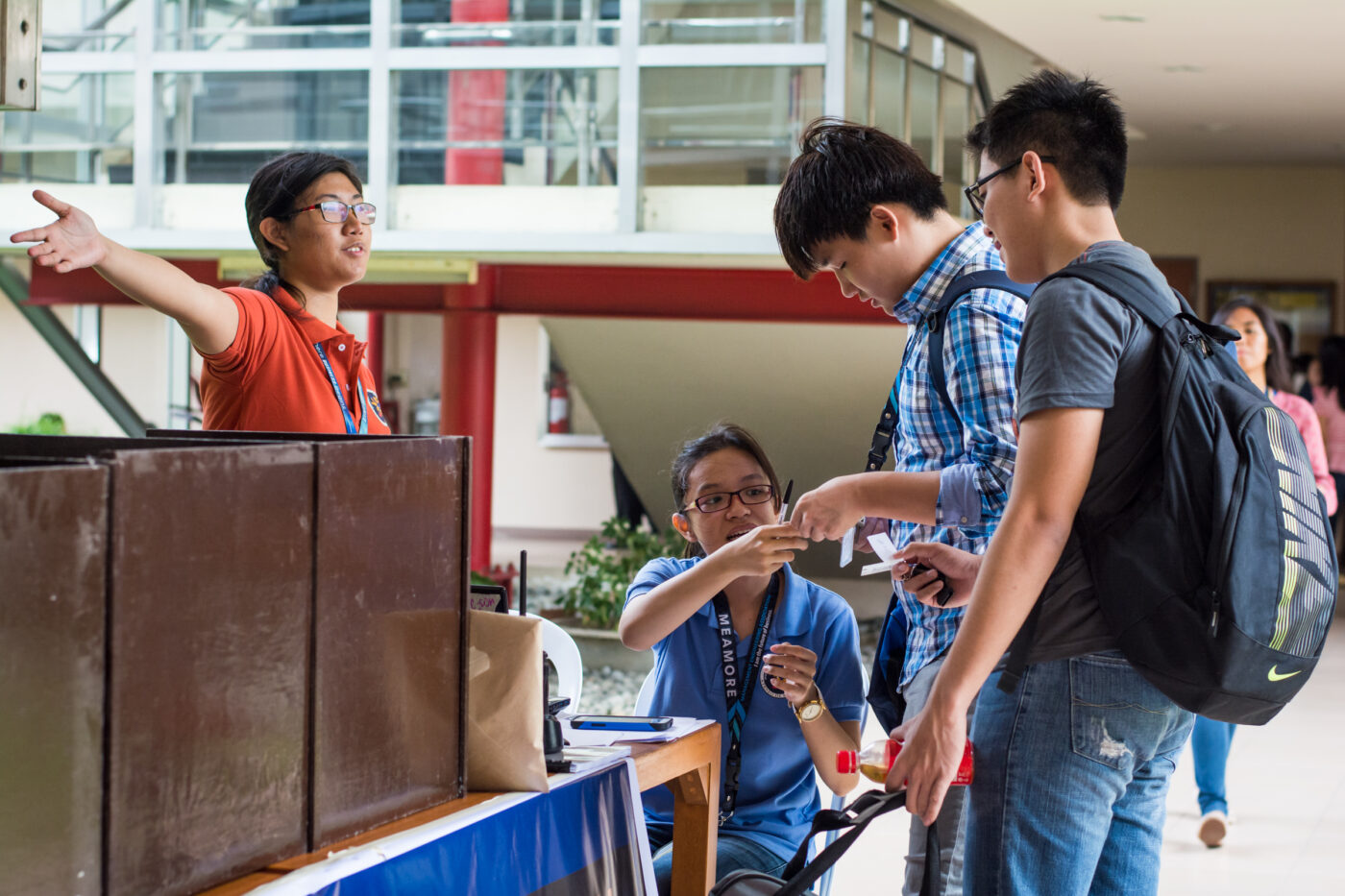THE ATENEO Commission on Elections (Comelec) was criticized by the student body for its decision to withhold information on a system glitch that occurred during the 2014 Sanggunian Freshmen and Special Elections held on August 11 to 14.
After voting hours on the 14th, the Comelec released a memorandum to announce that the votes for the course representatives of fourth year Bachelor of Science in Management, Major in Communications Technology Management (BS COMTECH) and third year Bachelor of Science in Management (BS MGT) course representatives were “not properly counted.”
Comelec assured that should the aforementioned positions reach quota, they would ask the affected students to recast their votes for their course representatives only. The Comelec planned to do so based on their database of voters’ identification numbers.
The same memorandum states that the Comelec discovered the glitch on August 13 but refrained from releasing the information “so as to let the natural flow of elections take place on the last day.”
The students of the affected courses were asked to use hard ballots on August 14.
In an interview with The GUIDON, Comelec Chief Commissioner Denise Olondriz said they did not want to affect “the way people thought.”
“Like last semester, they might think ‘I don’t want to vote since it’s not going to be counted,’” said Olondriz, referring to the 2014 Sanggunian General Elections.
During the said elections held last February, a system glitch prompted a petition for an extension to be raised.
In an interview with The GUIDON, newly elected Sanggunian Secretary-General Polo Martinez said that system glitches have been a recurring aspect of the elections.
“Why can’t we pinpoint exactly what’s wrong and give a decisive answer to what it is? It’s indicative of bad management on [the Comelec’s] part–bad logistics, bad planning,” said Martinez.
Newly elected Sanggunian Finance Officer Ray Gomez said that the nature of the glitch did not necessarily affect the quota. However, he is still against the withholding of information “just to make it seem that [the elections is] natural.”
Despite Comelec’s claim that hard ballots were used by fourth year BS COMTECH and third year BS MGT students, management junior Nicole Veloso said that she voted on the last day using the computer program.
Olondriz said that the poll officers were informed to utilize hard ballots for the said courses.
“However, there may have been people who were overlooked, like Nicole Veloso. If such were really the case, then we’ll also ask them to vote again for the course reps,” she said.
Olondriz also mentioned that on August 11, voters had pointed out that there were missing names from the list of candidates for the course representatives of 4th year BS COMTECH and 4th year Bachelor of Arts in Diplomacy and International Relations with Specialization in East and Southeast Asian Studies (AB Dip IR), which prompted Comelec to also use hard ballots.
She said this only affected one day of the elections and the voters for the said positions were properly informed.
Olondriz said the use of hard ballots on the 11th was not included in their prior memorandum because the August 13 glitch “was of graver matter.”
Backlash
In a statement made on August 14, the Ateneo Debate Society said the Comelec is violating its “very purpose” of ensuring transparency and of upholding the laws of elections by choosing to withhold information on the glitch until voting was over.
“The issue has moved past doubting the capability of Comelec to guarantee a glitch-free system. It is now a matter of questioning whether or not it can fulfill even the bare minimum of providing an honest and transparent system,” the statement read.
In an interview with The GUIDON, Christian Union for Socialist and Democratic Advancement (Crusada) Premier Abbo Hernandez emphasized that the Comelec is an apolitical institution that should not be making political moves.
“Their argument as to why they withheld information is [that they don’t want to have] voter’s fatigue like last year. My thought is, who are they to decide?” Hernandez continued. “It’s a political move when they want to control the way the elections will happen.”
As for Movement for Ignatian Initiative for Transformative Empowerment President Luigi Del Rosario, he said he understands that Comelec was trying to avoid discouraging voters but he finds their decision “very undemocratic and unjust.”
Rosario added that that while it is difficult to have an error-free system, Comelec should have been “honest from the start.”

Photo by Pia R. Nicolas
Validity
In its August 14 memorandum, Comelec explained the nature of the system glitch.
Only the votes chosen on the first drop down menus of were counted. All other positions only had one drop down menu due to the availability of one seat.
Some course representatives have several seats available, therefore, a multiple dropdown list was utilized.
The Comelec further explained the system glitch in a separate memorandum released on August 19.
Comelec said they noticed some inconsistencies in the voting tally for the aforementioned positions on August 12.
A partial tally of the results was released the same night with the disclaimer that the votes for 4 BS COMTECH and 3 BS MGT course representatives were unavailable.
The system glitch was only discovered on August 13, when Comelec contacted its programmer.
In the same memorandum, Comelec said it “does not see the nondisclosure of the information about the glitch upon discovery as any method that pushes for quota.”
“Nondisclosure of the information was aimed at making sure that the mindset of the students and their view of voting is not affected positively or negatively by the system glitch,” as stated in the memorandum.
However, Hernandez said that the decision of Comelec to withhold of information leads the people to question the truthfulness of the election results.
“If something irregular such as withholding information comes out under the argument that [they] want to make quota, it so believable to think that there are other things they are hiding just to reach quota,” he said.
The Comelec assured that the votes for other positions were not affected and were accurately counted.
As of press time, the commission has already asked permission from the program directors of the affected courses to take time from subjects of the affected students to get the students to recast their votes.
Furthermore, “to protect the sanctity of the ballot, the Commission plans on giving away hard ballots to all students in the class while explaining that only the votes of those who voted during the Freshmen and Special Elections are going to be counted.”
Making quota
On the same night that Comelec released the first memorandum on the system glitch, it also posted the official results of the elections.
The votes for the Top 4 candidates reached 4,656, surpassing the 4,477 votes needed to meet the quota.
Ryan Yu was re-elected as vice president with 3,336 votes, while Martinez and Gomez earned 3,196 and 2,008 votes, respectively.
Martinez said that he hopes the Sanggunian can amend the constitution due to a “clear lack of power and respect in the bureaucracy.”
“The Sanggu as an institution is a governing structure that is imperative in honing the identity of the student body,” he said.
Gomez said, in a mix of English and Filipino, that the newly elected officers have to make the most out of their seven months in office. “First off, we have to manage our expectations, but at the same time, we need to be organized so we’re efficient.”
“[The officers] are really hopeful,” Gomez added.







